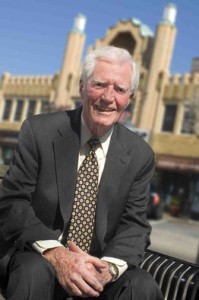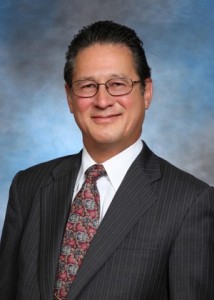♫ Ay oh ay oh ay oh ay
And the voices rang like the angels sing
We’re singing, ay oh ay oh ay oh ay
And we danced on into the night
Ay oh ay oh, ay oh ay oh
And we danced on into the night…♫
Lyrics and music by: Chad Kroeger, recorded by Santana.
First let me say congratulations to all the 2016 Clawbie winners, finalists, those nominated as well as all those who write long into the night, hoping their words find an audience and receptive eye. Thank you all who have taken the time to read these words and nominate my humble blog.
When Steve Matthews, Emma Durand-Wood and Jordan Furlong first created the Clawbie awards back in 2006, I had no expectation that I would ever receive one. Now, looking back, I find comfort in what Jonathan Sacks said:
“Follow your passion. Nothing – not wealth, success, accolades or fame – is worth spending a lifetime doing things you don’t enjoy.”
I would have to say that not a word would have been written on thoughtfullaw.com if I didn’t enjoy the process of writing and blogging. I have been most fortunate in finding these humble words found a receptive audience and as a result I have met many much more interesting people than I otherwise would have as a result of the blog.
To me the Hall of Fame award sets another goal – to ensure that if I write anything now, that it measures up to what has gone before and at least equals all the other blogs similarly awarded.
Congratulations to the other Hall of Fame award winners:
- Avoid a Claim (Dan Pinnington)
- Law of Work (David Doorey)
- Michael Geist (Michael Geist)
- Slaw (Collaborative)
as well as to all the many writers who work trying to find those words that dance long into the night.
Many thanks,
Dave Bilinsky, thougthfullaw.com
♫ Ain’t nothing gonna change
Ain’t nothing gonna change
Till we learn to get together
And see who we really are…♫
Lyrics and music by: O. V. Akintimehin, D. Merriweather, A. W. Blakemore, recorded by Daniel Merriweather.
In this third and final instalment, we have predictions from:
- Ben Stevens
- Joe Kashi
- Kevin O’Keefe
- Tom Spraggs
- Amelia Rodin
- Kate Gower
- Buzz Bruggerman
- Pablo Cortés
- Mitch Kowalski
- Deborah McMurray
- Richard Granat
- David J. Bilinsky
Ben Stevens
I hope all is well with you and that you have a very Merry Christmas and a prosperous and Happy New Year.
Prediction: I believe that 2017 will see Apple continue to see increased adaption in the legal field in two areas. Attorneys will continue to find new ways to use the iPad into their practices to increase their efficiency and effectiveness in advocating for their clients. As more applications move to the web and become platform agnostic, more attorneys will use Macs in their practices. I believe that the MacBook Pro’s new TouchBar will be well received and make an already terrific computer even easier to use.
Bio and contact info.:
Ben Stevens is a highly respected family law attorney, who is based in Spartanburg, South Carolina. He is a Fellow in both the American Academy of Matrimonial Lawyers and the International Academy of Family Lawyers, and he is a Board Certified Family Advocate by the National Board of Trial Advocacy. Ben has published The Mac Lawyer legal technology blog since 2006, and he co-founded the Macs in Law Offices (MILO) forum in 2007, which has almost 5,000 members today. He has been a featured speaker at numerous conferences all across the United States as well as several other countries, and he can be reached at Ben@SCFamilyLaw.com.
Joe Kashi
Teri and I send our best regards and Holiday Greetings.
As to predictions, I have two:
- Artificial intelligence will increasing affect the legal profession in several ways:
- Legal research with a focused manually-generated starting point will become more efficient as AI techniques as applied to legal research become more sophisticated.
- AI will be increasingly used to take a specified fact pattern and then generate on a jurisdiction by jurisdiction basis the applicable legal framework of applicable law, with generated citations and likely causes of action, probably also generating starting point transactional forms and pleadings. That will raise the standard of law practice, but only if lawyers are adept and precise in first ascertaining the provable, actual facts.
- AI, when fused with “Big Data” at the trial court level on a national and jurisdictional basis, will become more adept at predicting the outcome of a case, especially bench-tried cases, than even experienced practitioners.
- IBM is already starting to do this with its Watson software.
- All of the above will put even more financial and competitive pressure on the legal profession as a whole.
- Experienced lawyers who have the resources and background to embrace the above will be at a competitive advantage compared to younger lawyers who cannot afford or who cannot use new AI-based approaches as clients seek the reassurance of perceived personal experience and ability to connect with clients.
- The above will also generally tend to widen the gap between rich clients who can afford the expensive analytical approach to a trial and poor clients who cannot. However, AI-based analysis of fact patterns generating transactional forms and pleadings may be particularly helpful to smaller firms and less well-off clients who cannot afford to throw massive amounts of manpower at a particular matter.
- The ease with which now-predominant digital data such as digital photos and video, documents, texting etc can be now be easily altered will increase skepticism about such evidence, resulting in a need to have better authentication of digital evidence, particuarly photos and video.
Joe Kashi received his BS and MS degrees from MIT in 1973 and his JD from Georgetown Law School in 1976. He is a litigator in Soldotna, Alaska, and has extensively written and presented about legal technology throughout the US and Canada since 1990.
Kevin O’Keefe
Bio: Kevin O’Keefe, a former practicing lawyer of seventeen years, is CEO and Founder of LexBlog, Inc., which helps lawyers build a name for themselves with the most comprehensive blog publishing solution in the legal industry.
Tom Spraggs
2017 Predictions
Thought the legal industry has reached a technological saturation point? Think again.
2017 will be the year where artificial intelligence (AI) makes its presence quietly ubiquitous. Lawyers already using any form of internet search are utilizing AI and feeding data to it. This will bring new and ever increasing security risks to lawyers who endeavour to keep information confidential. 2017 will require leadership from our industry to adapt, modernize and contextualize actual versus theoretical threats in this new computing age or we will be left behind as an industry.
Gone are the days where only somewhat interesting parties were tracked and data-mined. In 2017 the online activities of all interesting and uninteresting persons (including lawyers, haha) will be tracked simply by virtue of being a “wired-in” member of our society. Similarly, lawyers can expect more conversations to be clandestinely recorded by clients and non-clients alike. We expect (perhaps hope is the more accurate sentiment) savvy lawyers to respond by providing excellent service to all clients at all times.
Consumers require increased efficiencies in the delivery of legal services. Smart firms will capitalize and fill voids created by out-of-touch and out-of-date law firms. You’ve been warned (but do those firms read blogs anyway?). Similarly, law firms require dependable and secure avenues to communicate better with clients.
bio
In 2005 Mr. Spraggs took over Spraggs & Co. from his father and has since led the firm through significant growth. He holds a Bachelor of Laws, Master of Laws, and a Masters of Business Administration which has helped round out his expertise in running a successful personal injury firm among many other endeavors. Recently, his firm was acknowledged by the Canadian Bar Association with the 2016 Innovative Workplace Award. Within his practice, Mr. Spraggs works with a large team of experienced lawyers, investigators and claims managers to help British Columbians get access to justice. He is a litigator, arbitrator and technologist who has a passion for growth and the future. Mr. Spraggs is in the process of launching Solvere Inc., a digital platform aimed at increasing access to justice.
Amelia Rodin
As law student, who hasn’t “worked in the trenches” yet, I thought I’d simply comment on an area that I think law schools could benefit from focusing on:
I’d like to see law schools continue to build meaningful access to justice programs within their communities by partnering with local agencies to build more interdisciplinary connections. Law students have a lot to offer outside of the traditional “legal clinic” setting – and could contribute to local grassroots movements.
Access to justice movement over the next year will likely be shaped by both global and local events. Just recently, we’ve seen a pledge to increase the fund for Innocence Canada, in an effort to recognize those who have been wrongfully convicted. This may be a result of attempting to mitigate the effects of events across Canada and the US that have highlighted racial profiling and overrepresentation of minorities within the system. Commitments to continue immigration efforts will also affect the landscape of access to justice locally. There is certainly no shortage of ways in which students can become meaningfully involved in their community.
By doing so, students may feel more connected to actual legal practice, and identify a purpose, or at least an interest or passion, to incorporate into their future career.
Amelia Rodin is a law student with Russell Alexander Collaborative Family Lawyers, and begins Articling in 2017. Currently completing her final year of the Juris Doctor/Master of Social Work program at the University of Windsor, Amelia focuses her studies on the area of family law, including custody and access, child support, property issues and divorce.
Kate Gower
I am in Canada, so my predictions are for this country. We just successfully completed a 60-day electronic trial in Victoria, BC using a very simple e-trial platform I put together, so my predictions flow from what worked well there.
On the last day of our trial, the judge commented on the “flowing transcripts” coming from the Real Time reporter, saying “whoever decided to do that was a genius because they have been and will be irreplaceable.” The court and counsel from both big and small firms benefited from the Real Time reporting: it made it easier to participate in the trial, especially for small firms, since there was no need to take frantic notes during trial and it helped all parties with their direct and cross examinations.
I predict 50% of all trials over 3 days long will have Real Time reporting and – since right now I hear anecdotally that Real Time is “quite common” in larger courthouses, such as Vancouver – I predict that there will be a way to confirm if my first prediction has come true.
2. Simple technology in the courtroom will squeeze out the use of paper.
When I say “simple”, I mean a laptop at the front of the courtroom linked to “slave” monitors on the tables for all counsel, the judge and the witness. Counsel would bring their documents to court on a thumbdrive (or similar) and use this simple technology to review electronic evidence (PDFs) in the courtroom.
In our trial, the parties purchased and set up this simple technology in the courtroom. It meant we didn’t have to deal with the inconvenience of many binders of common book documents. It saved space and time. In Vancouver, two courtrooms are already set up with monitors on every table: there is a form parties can fill out regarding in-court technology.
I predict 50% of trials over 3 days long in Vancouver will use a laptop and monitors on all tables to review evidence electronically in court.
3. Full “electronic trial platforms” will be on everyone’s radar
In our trial, we had a SMART board to mark up documents and agreements between the parties so that the court could review and receive evidence entirely in an electronic format. Our trial proved it can be done with only “over the counter” technology in the courtroom (for a 3-minute video of the e-trial platform in action, see: http://dgwlaw.ca/tag/
Across Canada, other trials are being conducted by bringing databases of electronic evidence into court (For example: 1159465 Alberta Ltd. v. Adwood Manufacturing Ltd., 2010 ABQB 133). BC’s securities commission has been running trials this way for 10 years. There are also companies developing proprietary e-trial platforms (for example, Opus 2 in England and Court Innovations’ Matterhorn in the USA).
Both Colin Rule and Darin Thompson highlighted examples of how the tide is turning, bringing technology into the courtroom. Our judge repeatedly informed the parties during case management conferences that he would not welcome a “wall of binders” in the courtroom, which helped us lead the other parties to an e-trial. In 2014, an Ontario judge ordered the parties to conduct a trial electronically (Bank of Montreal v Faibish, 2014 ONSC 2178).
All parties in our trial agreed that our simple, full e-trial platform was a success and across Canada electronic trials are going forward. However, even though I predict a lot of simple technology will be used in BC’s courts, I only predict that there will be three fully-integrated electronic trials in Vancouver and Victoria in 2017. I predict I will be in the courtroom, avidly watching how they roll out.
About Kate Gower:
Kate works as a contract lawyer in all areas of Aboriginal Law, specializing in Aboriginal consultation and litigation. She has become a regular speaker on electronic trials since she helped DGW Law Corporation run a 60 day Aboriginal Treaty Interpretation Case as an electronic trial in the Supreme Court of British Columbia (West Moberly First Nation et al. v. B.C.). The case was the first electronic trial in Victoria. Trial ended in November 2016.
She has appeared before British Columbia, Federal and Northwest Territories courts. She also has experience as a neutral investigator in the resolution of workplace complaints under internal discrimination and harassment policies in the public and private sector. Kate did her law degree at the University of Victoria, articled at Fasken Martineau, and now has her own business contracting her legal skills to other law firms. Before law, Kate was a journalist for the CBC and CTV in Canada, and the BBC in the UK.
Contact Kate Gower:
Phone: (778) 384-6541
Email: kategower@mac.com
Contract Lawyer with
DGW Law Corporation
Barristers & Solicitors
2nd Floor, 736 Broughton Street
Victoria, BC V8W 1E1
Tel. 250.361.9469
Fax. 250.361.9429
Buzz Bruggerman
So here goes…
1. 2017 will be a year of political chaos in the US. I envision the country basically fragmenting into three groups. Those supporting Trump, those sane people in the middle trying to keep the Republic together and those on the left, fighting the political equivalent of guerilla war just the like the right wing Republicans have done over the last 8 years of the Obama administration. It will be interesting to see if Trump makes it to a second year without threat of impeachment for his venal willingness to comingle the public good with his private business interests.
For those willing to do future reading, see Juan Enriquez, “The Untied States of America” as a reference: https://www.amazon.com/Untied-States-America-Polarization-Fracturing/dp/0307237524
2. We will begin to AR/VR companies shipping life changing products. It’s still early, but some of the products I have seen are mind blowing. When and whether they will become commercially feasible and available is TBD
3. Products like Atlas Recall (www.atlas.co ) will completely change how we use our computers to search for information. We will begin to see the first round of AI programs that will have massive impact on what we now call “work”. I think Atlas Recall (www.atlas.co ) will rise to Unicorn status. It’s a bit like seeing and using it are like the first iterations of Google.
About Buzz:
First Happy Holidays!
Trying to change the world, and helping to connect great people.
ActiveWords Co-Founder, Tech Evangelist, connector, small town Minnesota boy, Duke grad, and serious Duke basketball fan.
Now working on getting Atlas Recall (www.atlas.co ) in front of his friends.
http://bit.ly/2fkLsIb has a bunch of links.
And David Pogue just posted a rave review about it on Yahoo Tech: https://yhoo.it/2eLCZ4l
And Verge covered it here: http://bit.ly/2gYSMuo
The app is dazzling.
Pablo Cortés
I hope all is well with you too. Here are my predictions:
- The UK Parliament will produce at the start of the year the Bill for the Online Court, which will be the largest of its kind and before the year ends the first tests will be scheduled. In the meantime the Canadian BC Civil Resolution Tribunal will be in full swing and it will represent the best model to follow and from which to learn valuable lessons.
- The publication of the data from the EU ODR platform will bring some disappointment because we will realize that few consumers have used it and that most merchants have refused to opt in. On the plus side, all the EU Member States will be joined by then, and the realisation of its limited success will lead to an investment effort to increase awareness and the use of public muscle to incentivise the merchant’s participation.
- I will publish another book on online dispute resolution but I will struggle to find funding, which will force me to go back into teaching full time with a new module on Dispute Resolution (and Technology!)
Look forward to read all the predictions for 2017.
Bio:
Pablo conducts research in the field of consumer law, civil procedure, ADR and ODR. He has advised the European Commission during the drafting of the ODR Regulation and ADR Directive and has been invited to write reports and to participate in expert meetings by the UN Commission on International Trade Law (UNCITRAL Working Group-III ODR), the European Commission Directorate-General for Health & Consumers (DG SANCO) and Justice (DG JUST) as well as by the European Parliament Internal Market and Consumer Protection Committee (IMCO) and the Legal Affairs Committee (JURI). Pablo serves on the advisory board of NetNeutrals and Youstice. He is a fellow of the National Centre for Technology and Dispute Resolutions (University of Massachusetts, Amherst) and in 2012 he was a Gould Research Fellow at Stanford University. He is also a member of the Online Dispute Resolution Taskforce of the International Mediation Institute and a member of the ODR Advisory Group of the Civil Justice Council in England and Wales. Pablo has published extensively and is now completing his third book on consumer redress.
Professor Pablo Cortés, Chair in Civil Justice
Leicester School of Law
University of Leicester, University Road, Leicester, LE1 7RH, UK
t: +44 (0)116 252 5332
e: pablo.cortes@le.ac.uk
w: http://www2.le.ac.uk/departments/law/people/pablo-cortes
Mitch Kowalski
Last year I did reasonably well in my predictions, which means I will be way off in 2017! Although the first one is easy:
- Dentons LLP will acquire at least one firm in 2017;
- Codify will win the Blakes Global Legal Innovation Challenge;
- Ryerson will be granted a law school;
- TWU will win in all jurisdictions at the Supreme Court of Canada; and
- Alberta will permit ABS for non-profit law firms.
Have a great holiday!!
About Mitch:
Mitchell Kowalski is the Gowling WLG Visiting Professor in Legal Innovation at the University of Calgary Law School, the Legal Innovation Columnist The National Post, and the Principal Consultant at Cross Pollen Advisory where he advises in-house legal departments and law firms on the redesign of legal service delivery. He is also the author of the critically-acclaimed book, Avoiding Extinction: Reimagining Legal Services for the 21st Century. His new book, The Great Legal Reformation: Notes from the Field will be published in early 2017. Follow him on Twitter @mekowalski or visit his website www.kowalski.ca
Mitchell E. Kowalski M.A. LL.M. ICD.D.
Barrister and Solicitor
Gowling WLG Visiting Professor in Legal Innovation, University of Calgary Law School
Author of: Avoiding Extinction: Reimagining Legal Services for the 21st Century
627 Bloor Street West 3/F
Toronto, Ontario
M6G 1K8
t: 416-294-6499
f: 877-689-0652
Deborah McMurray
In 2017, I predict that experience databases will finally get the due they deserve as a vital cultural and integration tool in law firm mergers.
As mergers and combinations of all sizes continue to fuel law firm growth, effectively capturing what’s in the brains of your top lawyers becomes even more mission-critical. For these combinations to be successful and profitable as early as possible, what lawyers have done and for whom must easily be discovered and extracted – and then put to great use: building trust, demonstrating relevant expertise and selling new work.
The most committed and aggressive firms have a mandate around experience collection and organization that starts with their firm chairs and executive committees. We have learned that top-down engagements have greater success than bottom-up.
100 percent of law firms want to manage this better. The firms that do it well give access to the lawyers – with a link to the experience database on their intranets, access to reporting features, even the ability to enter in details about a new matter. And lawyers who are serious about wanting to win more are accountable to keep their matter records current. Relevant, at-your-fingertips experience is critical to winning more practice-defining, or I should say, career-defining work.
In the very best systems (judged by the amount, quality, and relevance of data), lawyers are involved in the data-capture process in one way or another. To win more, this cannot be a marketing department “initiative” – it must have full support of and engagement by lawyers in the firm. And it must have active support from the firm’s C-suite or it won’t get done.
Trust doesn’t automatically transfer from one firm to another as soon as merger documents are inked. It gets a proven boost, however, when lawyers can instantly investigate the experience of their new colleagues, 24/7 and regardless of time zone. This is a sure-fire way for key lawyers around the globe to trust the strength and qualifications of each new lateral, and for each one to feel embedded and valued in your firm.
Deborah McMurray is founder and CEO of Content Pilot LLC, a strategy, design, content and technology company. Clients include the largest law firms in the world, as well as national, regional and powerful local firms. A former law firm CMO, Deborah and her team specialize in award-winning design of websites, proposal centers and experience databases, and important strategic initiatives, such as content strategy design and positioning/branding campaigns. In 2008, she was inducted into the Legal Marketing Association’s Hall of Fame and in 2007, was elected as a Fellow in the College of Law Practice Management. In December 2013, she was named as one of National Law Journal’s “2013 Top 50 Legal Business Trailblazers & Pioneers.”
Richard Granat
Here are my thoughts for 2017:
Introduction
I am a bit preoccupied by the coming chaos in the U.S. to be caused by the new administration so that lenses affects my thinking, probably more than it should. The Trump Administration will have an impact on the legal market in many different ways.
—The access to justice movement in the US will receive a setback. A President who had no respect for the first amendment is not likely to have much respect for the sixth amendment either. Authoritarian regimes resist empowering people to have more access to the legal system. The appropriation for the U.S. Legal Services Corporation will be cut or endangered, putting more pressure on the private bar to provide services who those who cannot afford a lawyer.
—If the U.S. Federal Trade Commission assumes a more free market bias, that may put pressure on state bar authorities to license or enable nonlawyers to provide legal services directly to the public. This limited deregulation will result in further eroding the market share of solos and small law firms.
–Litigation against the Federal Government will increase making more work for boutique law firms who represent interests that are opposed to the new administration policies. Expect much more litigation at the state and local level as well.
–Law firms based in Washington, D.C. that represent special interests will also do very well.
–Non-lawyer ownership of law firms will continue to be a “non-starter” in the U.S.
Profit-making law schools will go out of existence in the U.S., unless the Trump administration reverses the regulatory framework now it places that makes educational institutions more accountable. The recent withdrawal of eligibility for federal student loans for Charlotte School of Law, is the death knell for these institutions.
Funding for legal startups will dry up as funding sources (VC, Angel investors) become more aware of the difficult regulatory environment and the approach of states, like North Carolina, that seek to over-regulate legal software that serves the public directly.
ABA membership will continue to decline as it struggles to remain irrelevant in a rapidly changing environment. Declining membership is a good overall metric for the reputational decline of the legal profession in the US.
Bio:
Richard S. Granat is the founder and CEO of DirectLaw, Inc., a virtual law firm platform provider.
Richard S. Granat, Esq. CEO/Founder
DirectLaw, Inc. | SmartLegalForms, Inc.
http://www.directlaw.com
PH: 800-481-1025
Direct: 561 – 622-9971
Cell: 561-214-1306
E-mail: richard@directlaw.com |
Connect With DirectLaw:
| DirectLaw Blog |
Connect With eLawyering:
| eLawyering Blog
ABA Journal – Legal Rebel -2009
ABA Louis M Brown Lifetime Achievement
Award for Legal Access – 2010
ABA Keane Award for Excellence
in eLawyering – 2013
FastCase50 Winner – 2013
DirectLaw offers a virtual law firm platform that
enables solos and small law firms to deliver legal services online.
David J. Bilinsky
Looking back at my predictions for 2016, I think the majority fall in the ‘coming true’ category. Perhaps the time line is a bit longer than I thought…
This year I would like to address what I believe are structural fault lines in the legal profession and how these could impact us.
- Access to Justice. Many of the predictions have dealt with this issue, but this is my take on it. The public’s appetite for real access to justice has never been stronger. Put it another way: legal fees are deemed too high and court delays are deemed much too long for Joe Average. While judges, courts and lawyers are taking steps to address these issues, I think the real change is going to be happening outside the traditional legal arena. There are two projects in particular that I am keeping my eye on.
- The first is BC’s Civil Resolution Tribunal. This is the first legislated alternative to going to court and is built around new alternative ways to find a way to resolve disputes. It is now operational in strata (condominium) disputes and will shortly proceed to small claims cases. Once the Tribunal has demonstrated success (without judges and yes, without lawyers) then other cash-strapped governments will follow suit and create tribunals in particular niches that will remove more and more cases from the courts. The UK will shortly follow suit with Her Majesties Online Court. This demonstrates a fine example of Albert Einstein’s quote: “We can not solve our problems with the same level of thinking that created them.” In other words, continuing to flog the pro bono dead horse will produce about the same level of results for access to justice that it presently produces with about the same impact on society. As a result, the patience of the public is running thin. The public is wanting access to legal services at rates they can afford and that delivers results in a reasonable time.
- The second is the Rechtwijzwer website in the Netherlands. This is another example of how technology and a fresh way of thinking can produce meaningful results for the public in terms of resolution of legal problems. In this case, it is the issue of divorcing and separating couples. I understand that this project currently has helped over 700 dutch couples divorce for a total spend of €400 per couple. Compare the costs in 2013 in Canada: “Average fees for uncontested divorces have dipped to $1,018 from $1,500 and for separation agreements, $1,985 from $2,106. (editor: note that this is per person, not per couple” (per Canadian Lawyer Magazine).
- In BC I believe the Government will be looking to expand the powers of BC Notaries under the Notaries Act, under the rubric of expanding the range of providers that can provide basic legal services to the public. Notwithstanding this change, I don’t expect the cost of these legal services to drop, whether provided by notaries or lawyers. I also expect to see more and more organizations housing both lawyers and notaries under the same roof, as they recognize that this can complement each other’s range of services.
- There will be a rapid expansion in lawyers providing legal assistance to the legal marijuana industry in Canada (and also in the USA).
- Canadian lawyers (and their American counterparts) will continue to search for the desktop equivalent of the Holy Grail…that offers full featured practice management (calendaring, email integration, conflict checking, file management, document management, document generation), fully integrated general and trust accounting, time and billing, cloud storage, backup, portal and collaboration services and more from one vendor, rather than trying to link up disparate services.
- Artificial Intelligence (AI) will continue to invade the legal sphere. The effect on practising lawyers remains to be seen, but I think it is a ‘disruptive force’ once its power becomes better utilized and focused.
- Security, malware and ransomwear will continue to be a weak point for lawyers and law firms. Conversely, full-disk encryption and zero-knowledge backup services will assume greater importance for the firms that recognize their advantages.
- Lawyers will continue to grapple with how to drag their partners into the late 20th century from the technology standpoint and adopt firm-wide technologies that benefit the entire organization but which require the dinosaurs to change with the times.
- Lastly I think law is about to undergo some fundamental change. Young bright minds are realizing that better opportunities lie in emerging (technology and related) careers rather than in the traditional role of a lawyer. Law related organizations such as the American Bar Association are facing a decline in membership [“According to the Annual Report of ABA Executive Director Jack L. Rives as delivered to the House of Delegates at this year’s Annual Meeting in Chicago, dues paying ABA Membership is declining steeply. When I joined the Board of Governors in 2005, some 282,954 lawyers were dues-paying, card carrying ABA members. This year, the projected count is down to 232,538 lawyers” [2015]. I believe the Canadian Bar Association’s numbers are remaining static or similarly declining (Wikipedia states: The Canadian Bar Association represents over 37,000 lawyers, judges, notaries, law teachers, and law students from across Canada. According to the Wayback Machine, the CBA’s membership was 36,000 in 2000). While there will be a need for lawyers in the future, the rewards that law offers relative to the long hours and personal toil on lives will cause many to reflect and reconsider.
I believe as a profession we can change the profession for the better. We need leadership, vision and thoughtful action, perhaps now more than ever before. We can change if we learn, as judges, lawyers, court administrators and the public, to work together to help solve the bigger legal issues facing our communities and our culture. We can achieve much more working together than we can working apart. We owe it to our colleagues, our friends, our families and our communities.
David J. Bilinsky is a Practice Management Advisor and lawyer for the Law Society of British Columbia.
He is a Fellow of the National Center for Technology and Dispute Resolution (NCTDR) at the University of Massachusetts. He is also a Fellow of the College of Law Practice Management and past Editor-in-Chief of ABA’s Law Practice Magazine.
David is an adjunct professor at Simon Fraser University teaching a totally online, graduate level course in the Masters of Arts in Applied Legal Studies program. This MA program received the 2011 Award of Excellence from the Canadian Association for University Continuing Education. He designed and taught the first legal technology course in Canada for the University of Toronto Law School.
Dave’s mission in life is to empower lawyers to anticipate the changes, realize the opportunities, face the challenges and embrace the expanding possibilities of the application of practice management concepts to the practice of law in innovative ways that provide service excellence.
Dave is the founder and Chair of the Pacific Legal Technology Conference and a past Co-Chair of the American Bar Association’s TECHSHOW.
Dave writes regularly for many publications in the USA and Canada including being a contributor to the award-winning blog www.slaw.ca, its sister blog, tips.slaw.ca as well as his own blog: www.thoughtfullaw.com.
Dave has keynoted and delivered dynamic and thoughtful presentations to legal and judicial conferences, practice groups, legal organizations and law schools across the globe and is considered a visionary in terms of how technology and other forces are changing the practice of law and how legal organizations can take advantage of these changes.
His articles have been translated into several languages and republished across the globe. He has a Bachelor of Science and a Bachelor of Law from the University of Manitoba and a Masters of Business Administration from the University of British Columbia.
Dave is a long-distance runner who has completed 11 marathons including: Boston, Chicago, New York, Portland, Vancouver, Victoria; many half-marathons and other events. He is an avid downhill and cross-country skier and was a volunteer ski-patroller for many years.
You can contact him at daveb@thoughtfullaw.com.
♫ It’s coming on
It’s coming on
It’s coming on
It’s coming on
My future is coming on…♫
Lyrics and music by: Damon Albarn, Teren Devlon Jones, Jamie Hewlett, recorded by The Gorillaz.
(photo by Sean Creamer, used under a Creative Commons Licence)
The predictions are coming in fast and furious! In this Part 2, we have prognostications from:
- Jeremy Hessing-Lewis
- Stephen P. Gallagher
- Colin Lachance
- Jared Correia
- Tim Baran
- Niki Black
- Jordan Furlong
- Larry Bodine
- Darin Thompson
Jeremy Hessing-Lewis
Introduction:
- Law as a Lifestyle Company: Traditional commitments to the billable hour meant that the practice of law rarely worked in half measures. As a lawyer in private practice, your options tended to be 0% employment or 130% employment. With the emergence of creatively structured alternative fee agreements (AFAs), we will see more lawyers opt for less than full-time practices. This will include increasing numbers of practitioners pursuing phased retirement, parents with young children, and those with employment or interests outside of the practice of law. While AFAs and new technologies will give law firms the option of becoming lifestyle businesses, regulatory bodies will struggle to keep-up with these changing practices.
- If This, Then…: With practice management technology fragmented among an increasing number of web applications, lawyers will become increasingly interested in the connections between these applications (the application programming interfaces or APIs). Direct APIs allow independent applications to share information. More complex intermediary tools (e.g. Zapier, IFTT), will increasingly be used to weave together multiple APIs and automate administrative tasks within a practice. Ronco’s dream will finally be fulfilled: “Just set it and forget it.”
- Demographic Shifts: Baby boomer lawyers are starting to read obituaries of law school colleagues. There is no better motivation to reevaluate priorities than the passing of peers. The valuation and sale of practices will decline, to be replaced by younger lawyers who are simply willing to take on the files. For every client that is an asset, there is another that is a liability. We will see more succession planning that addresses continuity rather than cash.
- Renewed Commitment to Justice: Following Donald Trump’s electoral victory, the Lawyers of the Left secret Facebook group has accumulated over 188k members. Many of the posts to this group have featured lawyers from all practice areas renewing their commitments to justice. In particular, many mid-career lawyers have expressed a rekindled appreciation for why they went to law school in the first place.
Thanks Dave and best of luck in the new year!
- a business lawyer with Vancouver-based Small Law;
- a legal practice management consultant through Appropriate Legal Technology; and
- the Senior Digital Advisor at the legal marketing agency, Skunkworks Creative Group.
 |
Jeremy Hessing-Lewis / Senior Digital Advisor jeremy@skunkworks.caSkunkworks Creative Group Inc. 604.739.8976 600 – 55 Water StreetVancouver, BC V6B 1A1 http://skunkworks.ca |
Stephen P. Gallagher
Aging of the legal workforce has finally hit the “proverbial brink wall.” According to a recent Oregon Attorney Assistance Program (OAAP) Retirement Survey, of the 6000 members over 50 who filled out the survey, bar members 60 – 69 represented over half (53%) of survey participants. To add insult to injury, 50% of these respondents report that they are planning on retiring from legal practice in the next five years. The brain-drain is clearly underway.
- In order to continue to attract talent, law firms will have to demonstrate concern for senior partners who need support in moving away from full-time practice. Young lawyers will be watching this very quickly. The worst thing that a firm can do is to do nothing about it.
- In order to continue to attract talent, law firms will have to adopt more flexible career paths for all lawyers that include formal flex-time guarantees for both aging lawyer as well as mid-career lawyers, who may not want to “Die at their Desks”.
Stephen P. Gallagher sees himself as a student of the legal profession. I am a former Director of Law Practice Management for the New York State Bar Association. Currently, I am a Baby-boomer born in 1946, and since I have been working in the legal profession for the past thirty-years, I consider myself a bit of a transition expert. I am an adjunct instructor of marketing at a Jesuit university, and I work with law firms and bar associations, to help get conversations started regarding the Aging of the Legal Marketplace. I have a limited coaching practice built around grandchildren’s schedules. sgallagher@leadershipcoach.us
Colin Lachance
My first inclination in looking ahead to the future of law in 2017 is to look into what has happened in other industries over the past 5 to 10 years and pick from there the changes that the legal industry might be ready to face. But as even that might be too fanciful a thought, I’ll instead over some broad predictions of what’s ahead without going too deeply into whether or which might hit the business of law.
- Cloud backlash. No I’m not talking about arguments against moving services to the cloud in the first place, but backlash and exhaustion from those who have been there for some time. Two triggers here: sheer volume and unwanted sharing. Honestly, I don’t seem to go very long without having or choosing to sign-up to a new cloud-based service to carry on my business and personal life. But what really begins to concern me is losing visibility and control of cross-service data sharing (i.m looking at you, G-Suite!). Surely, I’m not alone in this. But we press further into this world even as the news mounts of privacy breaches at one after another provider, and even as the daisy chain of our digital identities exposes our complete selves to the weakness of security practices at any link. I can’t tell you what form the backlash will take or what options exist, just that anxieties will be high and that 2017 will be the year we start to figure out what to do.
- Alexa, Siri and their friends move into the corporate world. As leaps in voice recognition begin to combine naturally with leaps in Natural Language Processing, machine/deep learning and knowledge management, the corporate world will start to wonder why it’s spending so much time typing things into in-house search and document management systems. With prime time for this still a few years down the road, 2017 will feature plenty of articles and profiles of companies that operate on voice commands to call up corporate knowledge. Think: “Computer, put the 2016 Johnson – Smith contract on screen. Read me Paragraph 4.”
- Giants begin to fall. Jack Welch of GE fame was found of saying he only wanted the company to be in businesses where they could be the number 1 or number 2 player. 2017 is the year a lot of number 2 players lose their spots or at the very least find that being number 2 ain’t all that special. In all domains, but especially in those reliant on the burgeoning AI field, innovators will lower or remove barriers and undermine pricing strategies of market incumbents.
Bio and contact info:
Colin Lachance, as CEO of Maritime Law Book, is currently leading the launch of Canada’s newest case law research platform (Compass) through which he hopes to contribute to the realization of his third prediction. A business advisor and lawyer, Colin served as CEO of the Canadian Legal Information Institute (CanLII) from 2011 to 2015 and in that capacity was profiled by the ABA Journal as a “Legal Rebel” (2014), by Canadian Lawyer Magazine as among the “Top 25 Most Influential” (2014), by the Canadian Bar Association as an innovator who is “Doing Law Differently”, and by Fastcase as a member of the 2013 Fastcase 50 class of legal innovators and visionaries. Prior roles included senior positions in advocacy, marketing and lobbying with a national telecommunications company. An average and unimpressive student in all his schooling, he added a technology-focused LL.M. in 2013 to the degrees in business and law obtained in the bloom of youth.
A frequent speaker and author on legal information, technology and market development topics, his recent professional commitments included consulting with firms, corporate legal departments, access to justice organizations, courts, law associations and others through PGYA Consulting. In 2016 he served as an advisor to numerous legal tech startups, to a government-funded research study into access to justice mobile apps, and was an industry advisor to the legalX cluster at Toronto’s MaRS Development District during its first year of operation. He practices communications law part-time in association with Momentum Business Law in Ottawa, Canada, but otherwise is of little use as a lawyer.
Colin can be reached by email Colin@pgya.ca, phone 613-316-3290 and Twitter @ColinLachance
Jared Correia
- Seeking reduced competition, more favorable cost of living and improved lifestyle components, more solo and small firm lawyers will open practices in rural areas.
- The use of modern technology, including cloud software, will allow them to remain competitive as against law firms located in large, urban centers.
- And, these lawyers, freed from the hive mind mentality of big city lawyering, will be freed to try innovative approaches to marketing, client service and billing.
Jared D. Correia, Esq. is the CEO of Red Cave Law Firm Consulting, which offers subscription-based law firm business management consulting and technology services for solo and small law firms. Red Cave also works with legal institutions and legal-facing corporations to develop programming and content. A former practicing attorney, Jared has been advising lawyers and law firms for over a decade. He is a regular presenter at local, regional and national events, including ABA TECHSHOW. He regularly contributes to legal publications, including his column, ‘Managing,’ for Attorney at Work and a forthcoming advice column for Lawyerist. Jared is the author of the American Bar Association publication ‘Twitter in One Hour for Lawyers’. He is the host of the Legal Toolkit podcast on Legal Talk Network. Jared also teaches for Concord Law School, Suffolk University Law School and Solo Practice University. He loves James Taylor, but respects Ron Swanson; and, he tries to sneak Rolos when no one is looking.
Tim Baran
I’m more of a here-and-now than a futurist. There are folks who are much, much smarter prognosticators, so I’ll leave it to them. However, here’s what I would like to see happen in 2017.
Access to Justice – Good people are doing good work hosting hackathons, creating apps, and offering free and low cost criminal and civil legal help to those for whom justice is less than blind. Thing is, many of the folks who could use these services don’t even know they exist.
I’d like to see justice warriors go to underserved areas and spread the word to folks who don’t know what they don’t know and spread the word. Like churches, synagogues, mosques, and other places of worship. Community centers, movie theaters, and street corners. Perhaps even an old retrofitted van or bus providing mobile justice. If you’re interested in starting a city by city movement, get in touch with me and let’s do this.
Diversity – Again, lots of good work happening here but I’d like to see us take the long view. Start in high school. Lawyers beget lawyers and many of the rest can’t even visualize themselves in court or firms. College is too late. Many won’t get there without mentorship and the confidence that they belong.
I’d like to see every Am Law 200 firm, corporate department, and federal and state court, offer a hands-on program for high schoolers including scholarships, mentorship, and internships. Yep, scholarships. Cold hard cash. Gotta walk the talk.
Marketing – There needs to be less content and more connecting. And I’m a content guy. Everyone’s doing the same damn thing. It’s a no-win proposition. Webinars, E-Books, Blogging, Data Analysis? Everyone’s doing it, and someone’s doing it better than you.
What would I like to see in 2017? Keep writing but do less of it and go deep. Don’t let your insatiable desire for bloody traffic water down your writing and distort your message and add to the noise. Use content to facilitate connections – like the invite to this collaborative post. Look outward for connections across clients, products and functions. Use content to facilitate the effort. Lots to unpack here. For more on this check out The Content Trap: A Strategist’s Guide to Digital Change by Bharat Anand. End of rant.
Well, almost. Video seems to be the hot thing so of course everyone is jumping on that bandwagon. Go for it but make sure it’s useful for your intended audience and not salesy or narcissistic, the latter of which seems to be proliferating.
Technology – So many good companies and applications in the legal space, so little time to test them all to determine which is best for you and your firm. I’d like to see some overdue consolidation in the industry. ‘nuff said.
Tim Baran is all about community. He’s engaged in improving the management and delivery of legal services and access to justice. He works on content, connections, and relationships with Rocket Matter. Tim is the author of Evernote for Lawyers and was named to the 2016 Fastcase 50 honoring the law’s techies, visionaries, and leaders.
Niki Black
Technology is changing the legal landscape and providing lawyers with more options and better tools than ever before. Improvements and advances in software are making it possible for lawyers to be more mobile, collaborative, and responsive, while focusing on the work they truly enjoy. Lawyers will have more options than ever in 2017 to help streamline and improve their day-to-day work processes.
For example, lawyers will have more options than ever when it comes to collaborating online. Litigators, in particular will benefits from software designed to facilitate collaboration between litigation teams. Using litigation case management software, teams of lawyers can collaborate and share notes about case-related evidence and documents in a secure web-based platform. Litigation collaboration by simplified and streamlined, thus reducing redundancies and inefficiencies in the litigation preparation process.
And, advances in AI that reduce the repetitive tasks of day-to-day practice will increase exponentially in 2017. Using machine learning and advanced analytics, AI software is being designed to impact many areas of practice by reducing the amount of rote work often performed by lawyers. For example, there are new software tools on the market that take advantage of AI to streamline timekeeping, contract review, due diligence analysis, and legal analytics for litigation. In 2017, you can expect to see many other new AI software products that will assist lawyers with any number of different functions. Of course, it’s important to emphasize that AI software will not replace lawyers; instead, it will remove some of the drudgery of practicing law from lawyers’ lives, allowing them to focus on higher level analytical thinking and on the needs of their clients.
Here’s my bio:
Nicole Black is a Rochester, New York attorney and the Legal Technology Evangelist at MyCase.com, legal practice management software. She is the nationally-recognized author of “Cloud Computing for Lawyers” (2012) and co-authors “Social Media for Lawyers: The Next Frontier” (2010), both published by the American Bar Association. She also co-authors “Criminal Law in New York,” a Thomson West treatise. She writes a regular columns for The Daily Record, Above the Law, and Legal IT Pros, and has authored hundreds of articles for other publications, and regularly speaks at conferences regarding the intersection of law, mobile computing, and Internet-based technology. She can be contacted at niki.black@mycase.com.
Jordan Furlong
I admit, this might be wishful thinking. But I have a feeling that 2017 will turn out to be the year we reach a tipping point in the campaign to improve access to justice. I’m now encountering A2J in many different contexts outside the legal profession — in the mainstream press, at technology conferences, and among governments, think tanks, policymakers and corporations. It looks to me like access to justice, about which the legal profession has said a great deal but accomplished relatively little over the past few decades, has finally breached the consciousness of society at large.
This may prove to be a double-edged sword for lawyers. On the positive side, bringing many more resources and many different and diverse perspectives to the A2J problem can only accelerate us towards a solution. On the negative side, as Lawyerist’s Sam Glover pointed out a few years back, we can close the access-to-justice gap, but lawyers aren’t going to like it.
It is very clear to people outside the legal profession that lawyers are demonstrably unable or unwilling to make adjustments to their business model that would make their services more affordable to more people. It’s equally clear to these observers that the legal profession intends to indefinitely maintain barriers against “non-lawyer” service providers who could help enable more access to legal services. Whatever merits these positions might have when viewed from within the profession, I can assure you they have almost no traction outside it.
Access to justice is about to become a mainstream social issue. When it does, it will leave the orbit of the legal profession, and along with it will go the profession’s ability to dictate or even influence the solutions that are eventually found. Those solutions will have consequences for lawyers, both intended and unintended, and not all of them will be good. But I suspect our window of opportunity to do much about that, a window that has been open for many years, is finally going to close.
Jordan Furlong
Jordan Furlong is an internationally recognized consultant and legal market analyst who forecasts the impact of changing market conditions on lawyers and law firms. He has addressed audiences throughout Canada, the U.S., Great Britain, Europe and Australia over the past several years, including law firms, law societies, state bars, courts, law schools, and numerous legal associations. Jordan is a Fellow of the College of Law Practice Management and a member of the Advisory Board of the American Bar Association’s Center for Innovation. He writes regularly about the changing legal market at his website, law21.ca.
Larry Bodine
Here you go David. Happy holidays!
2017 will see more plaintiff trial attorneys opening a mass torts practice area. There are already 250 federal mass tort dockets with 135,000 actions, primarily product liability cases involving defective medical devices and dangerous drugs. In fact, 36% of the entire federal caseload is composed of mass tort actions. Some of the better-known cases involve defective hip implants, talcum powder, blood clot filters, pelvic mesh implants, and drugs like Lipitor, Xarelto and Abilify. Mass torts, where multiple actions are consolidated before one judge, have surpassed class actions as the best approach for attorneys to hold giant corporations responsible. Listen to my webinar at https://goo.gl/R0SUOk.
Attorneys will throw away less money on pay-per-click advertising, search engine optimization and other disposable forms of marketing. Instead, they’ll embrace content marketing, which creates a permanent online asset that grows with each new blog post. A basic website needs a minimum of 5,000 words to make a dent; to dominate a market an attorney should have 50,000 words online. And yes, lawyers are hiring attorneys to write all that copy for them. For a content clinic see https://goo.gl/sHcz82
- Attorney admitted in Wisconsin in 1981
- Sr. Legal Marketing Strategist, LawLytics Legal Marketing Suite, Tucson, AZ
- Editor, The National Trial Lawyers – http://www.thenationaltriallawyers.org/legal-news/
- Editor, Mass Tort Nexus – https://www.masstortnexus.com/mass-torts-news/
- Former Editor of Lawyers.com, a LexisNexis website
- Former Editor of The ABA Journal
- Former Director of Marketing, Sidley Austin
- Legal marketing blogger, www.LarryBodine.com/blog
Darin Thompson
Legal expert systems will continue to increase access to justice
Access to justice will increase thanks to expanded use of legal expert systems. In BC, we already have 3 great examples. The Legal Services Society’s MyLawBC platform supports users in the area of family law, foreclosures, and wills & estates. The Civil Resolution Tribunal’s Solution Explorer platform is supporting users with condominium disputes, with small claims coming soon. BC’s Residential Tenancy Branch recently launched a new expert system for landlord-tenant disputes, also using the Solution Explorer platform.
As a by-product of this expanded use of legal expert systems, we will see the emergence of new ‘legal knowledge engineers’ who are trained to put expert legal reasoning and guidance in the hands of non-expert users (i.e. the public). If you’ve read any of Richard Susskind’s works lately, you’ll be familiar with his description of the new role of the legal knowledge engineer. Several knowledge engineers have already been trained to create and maintain Solution Explorer content. And Thompson Rivers University Law’s new course led by Prof. Katie Sykes will bring this training directly to the law school environment.
Expert systems are also being used for triaging legal aid users in places like New Mexico. The recently announced Microsoft Statewide Legal Access Portal Project, which includes at least $1 million in technical development from Microsoft to create a legal access portal will also include a legal expert system component. This initiative could add considerable momentum to the development and deployment of expert systems in the legal domain.
Online Dispute Resolution (ODR) will become more ‘normal’ for public justice
Colin Rule covered this better than anyone can in the 2017 Predictions – Part 1 post. But I’m going to +1 him on it anyway.
The digital-first model of the Civil Resolution Tribunal represents a big leap forward in this area. BC’s first public justice ODR service created by the Property Assessment Appeal Board in 2011 helped to pave the way for the CRT, thanks in a large part to the work of Colin Rule’s company Modria.
Now that England and Wales has crystallized its intention to create online courts, it will make it harder for courts in other jurisdictions to argue that ODR is somehow unsuitable for public justice processes.
I agree with Colin that 2017 will see ODR continue to move forward in courts, tribunals and other key public justice services.
People will stop asking “Should we do ODR in the public justice system?” and start asking instead “What will it look like, and when do we start?”
Bio:
Darin Thompson is a lawyer with the BC Ministry of Justice. He has helped to initiate multiple projects using online dispute resolution (ODR) and is a former member of the Canadian delegation to the United Nations Working Group on ODR. He is also part of a team that developed a knowledge engineering process for legal expert systems.
Darin is also an adjunct professor of Legal Information Technology at Osgoode Hall Law School and the University of Victoria Faculty of Law. He holds a BA (with distinction) and a JD degree from the University of Victoria and an LLM (with distinction) in Innovation, Technology & Law from the University of Edinburgh.
More at: http://darinthompson.ca/about/
More predictions are to come in Part 3! Stay tuned!
♫ Hey, how you like it?
How you like it?
I see the future, baby
You and I, better with time…♫
Lyrics and music by: Bryan Michael Paul Cox, Johnta M. Austin, Kendrick Ashley Jevon Dean, Mary J. Blige, recorded by Mary J. Blige.
In this first instalment of the predictions for 2017 ( I just asked for submissions yesterday! ), we have predictions from:
- Colin Rule
- André Coetzee
- Ross Fishman
- Bob Denney
- Sharon Nelson and John Simek
More predictions will follow in Part 2!
Colin Rule:
Wow, Buzz nailed it last year! I was overly optimistic about timing, but I still feel my 2016 prediction is on track.
About Colin:
Colin Rule is Co-Founder and COO of Modria.com, an ODR provider based in Silicon Valley. From 2003 to 2011 he was Director of Online Dispute Resolution for eBay and PayPal. He has worked in the dispute resolution field for more than a decade as a mediator, trainer, and consultant. He is currently Co-Chair of the Advisory Board of the National Center for Technology and Dispute Resolution at UMass-Amherst and a Non-Resident Fellow at the Gould Center for Conflict Resolution at Stanford Law School.
Colin co-founded Online Resolution, one of the first online dispute resolution (ODR) providers, in 1999 and served as its CEO (2000) and President. In 2002 Colin co-founded the Online Public Disputes Project (now eDeliberation.com) which applies ODR to multiparty, public disputes. Previously, Colin was General Manager of Mediate.com, the largest online resource for the dispute resolution field. Colin also worked for several years with the National Institute for Dispute Resolution (now ACR) in Washington, D.C. and the Consensus Building Institute in Cambridge, MA.
Colin has presented and trained throughout Europe and North America for organizations including the Federal Mediation and Conciliation Service, the Department of State, the International Chamber of Commerce, and the CPR Institute for Dispute Resolution. He has also lectured and taught at UMass-Amherst, Stanford, MIT, Pepperdine University, Creighton University, Southern Methodist University, the University of Ottawa, and Brandeis University.
Colin is the author of Online Dispute Resolution for Business, published by Jossey-Bass in September 2002. He has contributed more than 50 articles to prestigious ADR publications such as Consensus, The Fourth R, ACResolution Magazine, and Peace Review. He serves on the boards of the Consensus Building Institute and the PeaceTech Lab at the United States Institute of Peace. He holds a Master’s degree from Harvard University’s Kennedy School of Government in conflict resolution and technology, a graduate certificate in dispute resolution from UMass-Boston, a B.A. from Haverford College, and he served as a Peace Corps volunteer in Eritrea from 1995-1997.
Predictions for 2017
- Firms instead of adding more square footage to their office space as they grow, will turn to hosted services to create a hybrid of physical office space with legal professionals working virtually, saving time, money and creating a great modern working environment;
- Technology being flexible, mobile and nimble are all expected from legal professionals. Being able to work from anywhere and enjoying flexible hours will assist firms in attracting top young talent who not only want a successful career but also work life balance;
- Powerful mobile devices allow firms to leverage technology advancements in web based video conferencing to more efficiently communicate with clients and staff alike;
- An even greater push to go paperless resulting in reduced cost, better efficiencies and the added bonus of saving the planet. By moving to paperless offices there will be more demand for document management software that allows firms to access and search for digital documents quickly and easily;
- Continued focus on security and protection of data:
- greater adoption of two factor authentication;
- more centralized user access management and single sign on to the myriad of applications people use i.e. getting the user access to what they need at the right time with the right privileges;
- predictive security software and tools to protect firm’s data against ransomware and other malicious attacks;
- Applications that extract data from multiple legal and business applications\data sources and then mines and analyzes the data to pick up trends and perform predictive forecasting. This will lead to better serving clients and potentially finding new ones;
- Integration of CRM based applications with VoIP on a hosted desktop i.e. being able to call a client by clicking on their number in your CRM application and dialing from your VoIP soft phone loaded on your hosted desktop. When a client calls in it will automatically pick up their company and contact information and pop up on your screen before you answer the call;
- The way we interact with technology is going to be more experiential and tactile driven by Artificial Intelligence, Augmented Reality and Virtual Reality. Check out Magic Leap for a glimpse of the not too distant future – www.magicleap.com;
André Coetzee, MBA, PMP, BA, H.Dip.Ed.
(Master’s in Business Administration, Project Management Professional, Bachelor of Arts, Higher Diploma in Education)
Andre Coetzee is a Director and a founding partner of i-worx, a Premium Hosting Service Provider for law firms. Andre is constantly researching and exploring new and better Hosted IT services with the goal of continuously providing legal firms a premier IT experience. As a result i-worx has developed a reputation for delivering innovative Hosted IT services to law firms, including Hosted Desktops, Hosted Email and secure file sharing with exceptional personalized service. For more information or to learn more about how hosted services could benefit your Firm, call 604.639.6300 or email andre@i-worx.ca.
Ross Fishman
Although future predictions are always challenging, my 2017 crystal ball is looking more like a Magic 8 Ball — “Try again later.” At the moment, Cassandra can’t even foresee what she’s going to have for lunch. (And who’d believe her anyway?)
That being said, in light of the new political environment, I’m feeling pretty confident about my predictions, below. Here are the practice areas I feel are going to be especially hot in 2017, and why:
- In 2017, the new administration will enact harsh new regulations, risking a trade war with China, and making international trade an especially hot practice. Unless, you know, they don’t. And it isn’t.
- We’ll start building a wall with Mexico, generating high demand for both construction and immigration lawyers. Unless we don’t. And they aren’t.
- The US Supreme Court nominee will be provocative and polarizing, increasing demand for Supreme Court specialists. Unless s/he isn’t. And it doesn’t.
- A major Twitter faux pas will create an international incident in Latin America, expanding Florida-based Latin American practices. Unless that never happens.
Hell, I don’t know. I got nuthin’.
BIO:
“Many people consider [Ross] to be the nation’s foremost expert on law firm marketing.” – Of Counsel magazine
Ross Fishman, JD, is CEO of Fishman Marketing, specializing in strategy, branding, and websites for law firms. A former litigator, marketing director, and marketing partner, he has helped 200 firms stand out from the competition and generate revenue (see fishmanmarketing.com/results for 100 case studies). A popular keynote speaker and Ethics CLE presenter, he has given 250 presentations worldwide. Ross’s popular “The Ultimate Law Firm Associate’s Marketing Checklist,” called a “marketing bible” by Of Counsel magazine, is available on Amazon at https://goo.gl/HsrmbE.
A Fellow of the College of Law Practice Management, he was the first inductee into the Legal Marketing Association’s “Hall of Fame.” Contact him at ross@fishmanmarketing.com or +1.847.432.3546. Follow him on LinkedIn (linkedin.com/in/rossfishman) and Twitter @rossfishman), and subscribe to Fishmanmarketing.com/BLOG.
Bob Denney
Here are my humble – and not-so-humble – predictions:
- There are always changes in the legal profession, particularly in
the United States, when there is a change in Administration. There
will be more than ever in the next few years under the Trump
Administration. - Immigration and cybersecurity will have the most dramatic growth.
- The push for Alternate Energy will cool down, at least in the U.S.
- Law firms will hire more professional business developers, i.e.
non-lawyer sales executives, following what has been a common
strategy in the accounting profession for decades. - Some law schools will close because of the continued decline in
jobs for their graduates. - The number of Alternate Business Providers – non-lawyer entities
– and the services they provide will continue to grow. - Alternate Business Structures (ABSs) with non-lawyer ownership or
investment will be approved in Canada but not yet in the U.S. - The number of non-lawyer management and administrative positions
in even mid-size firms will grow.
ROBERT W. DENNEY
President,
Bob Denney has provided incisive management, business development and leadership counsel to over 400 law firms and legal organizations throughout the United States and parts of Canada He is the author of the highly regarded reports on “What’s Hot and What’s Not in the Legal Profession.”
He has been a Fellow in the College of Law Practice Management, has served on the Board of the Legal Marketing Association and is a member of the LMA’s Hall of fame. He has written or co-authored seven books, two of which were published by the American Bar Association, as well as articles that have appeared in many legal publications. He has been interviewed by the ABA Journal, The Wall Street Journal, The Philadelphia Inquirer and The New York Times and has conducted webinars and national TV seminars on law firm management and business development.
Bob has addressed conferences sponsored by The American Lawyer, the ABA, the Canadian Bar Association, the Law Society of British Columbia, the Association of Legal Administrators, the Legal Marketing Association and numerous state bar associations. He has also been a guest speaker at several law schools.
He graduated with honors from the University of Pennsylvania. After serving as an officer in the Navy, he did post-graduate work at the Wharton School towards an MBA. In the first phase of his career, Bob was President of a national cosmetics company and was also Vice-Chairman of that industry’s principal trade association. In that capacity, along with Ralph Nader, he testified before a Senate sub-committee.
In addition to being active in charitable and professional organizations, Bob and his wife have raised nine children and live in suburban Philadelphia.
Note: Some of Bob’s articles as well as many of his Legal Communiques are published on his web site, www.robertdenney.com, 154 Chandler Drive, West Chester, PA 19380• 610-431-2077 • cell 610-804-7850, email: bob@robertdenney.com • web site: www.robertdenney.com
Sharon Nelson and John Simek
Predictions for Dave Bilinsky
- Our first prediction is that no one will know what cybersecurity will look like until the Trump presidency is well underway. Mr. Trump is an unknown. If what he says is true, he does not value privacy in the context of what he sees as the fight against ISIS and others – and this does not bode well for the Constitution. Mind you, we were not happy with some of the privacy invasions which took place under Mr. Obama’s administration.
- Ransomware will get ever MORE crafty – and ransoms, which have gone up sharply in 2016, are likely to go even higher. It is not unusual at this point to see bitcoin ransoms in the $2500 range where law firms are compromised.
- The media has begun to report that the luster is off Apple and we believe that trend will continue. The truly innovative days of Steve Jobs appear to be gone. We have seen many clients switch from iPhones to Androids and embrace the Surface Pro.
- An increasing focus on tech CLEs seems likely. Florida, in 2016, mandated tech CLEs and we, in Virginia, have seen VSB TECHSHOW (capped at 500 attendees) sell out twice – and we expect to see it fully sold out again in April of 2017 – there is a great hunger among lawyers for good tech CLEs by speakers they can understand.
- We expect more major IoT breaches of personally identifiable information. We are at the point where it may cause actual physical harm or a huge financial impact.
- Continued implementation of encryption everywhere is very likely. Encryption by default is now standard in so many places.
- We predict, sadly, that a lot of solo and small practitioners will find that they are not selling what clients want to buy – primarily lower prices when technology is effectively leveraged.
- We also expect to see a greater usage of client portals – another way of protecting confidential data – and a feature that clients absolutely love.
- Block chain technology will begin to make inroads in the legal process as a method of authentication.
- Lawyers will increasingly understand that they must “fish where the fish are” – in social media. We have seen a great interest in CLEs which teach attorneys how to effectively manage and leverage social media.
About John and Sharon:
Sharon D. Nelson, Esq.
Sharon D. Nelson, Esq., is the President of Sensei Enterprises, Inc., a digital forensics, information security and information technology firm in Fairfax, Virginia.
Ms. Nelson is the author of the noted electronic evidence blog, Ride the Lightning and is a co-host of the Legal Talk Network podcast series called “The Digital Edge: Lawyers and Technology” as well as “Digital Detectives.”
She is a frequent author (fifteen books published by the ABA and hundreds of articles) and speaker on legal technology, information security and electronic evidence topics. She was the President of the Virginia State Bar June 2013 – June 2014 and a past President of the Fairfax Law Foundation.
She may be reached at snelson@senseient.com
John W. Simek
Mr. Simek is the Vice President of Sensei Enterprises, Inc., an information technology, digital forensics and information security firm located in Fairfax, VA. Mr. Simek has a national reputation as a digital forensics technologist and has testified as an expert witness throughout the United States. He holds a degree in engineering from the United States Merchant Marine Academy and an MBA in finance from Saint Joseph’s University.
Mr. Simek holds the prestigious Certified Information Systems Security Professional (CISSP) and EnCase Certified Examiner (EnCE) certifications in addition to multiple other technical certifications. He currently provides information technology support to hundreds of Washington, DC area law firms, legal entities and corporations. He is a co-host of the Legal Talk Network podcast Digital Detectives. He is a frequent author (fifteen books published by the ABA and hundreds of articles) and speaker on legal technology, information security and electronic evidence topics.
He may be reached at jsimek@senseient.com.
Thank you to all the authors! We will gaze further into the future in Part 2!
♫ Tell me, tell me where I’m going
I don’t know where I’ve been
Tell me, tell me, won’t you tell me
And then tell me again
My heart is breaking, my body’s aching
And I don’t know where to go
Tell me, tell me, won’t you tell me
I’ve just got to know
Crystal ball
There’s so many things I need to know…♫
Music and lyrics by: Tommy Shaw, recorded by Styx.
At this time of the year, I call for our gentle readers to submit their predictions for 2017.
I would love to hear from you and read your thoughts on what the year will hold for the legal community.
Topics can range from: access to justice, security, legal software, justice and online dispute resolution, big law, solo and small firm issues, alternative business structures, changes in legal regulations, business development, legal marketing, change management, firm governance, moving to paperless or moving to Mac (or back to Windows), quality of life, tips and trends …all these topics and more are on the table.
Results will be posted in a series of articles near the end of December.
I would love it if you put your thinking cap on and send me your prediction. Let’s see what we can do together as there are so many things we need to know!
♫ Their habits, I confess
None can guess with the couple…♫
Lyrics and music by Sammy Cahn and Neal Hefti.

Look at your desk and office. Whose office does yours resemble? Oscar Madison’s or Felix Unger’s? Is your desk neat and tidy or more a hodgepodge of piles of paper, old coffee cups and files stacked everywhere with food wrappers interspersed? Of course The Odd Couple accented the extreme personal differences between Oscar, who is perhaps the world’s most famous slob and Felix, the extreme clean freak, as a way to create an underlying comedic friction as the backdrop for the show.
But according to George Rains, your desk says a lot about you and your work habits. George states that there are at least 3 reasons to keep a clean work space:
#1 A clean work space projects a Professional and Personal Image
#2 Your office reflects on the image of your firm
#3 A clean office can help maintain personal health
George is not alone in advocating for a clean and tidy workspace. Pat Heydlauff states:
According to the National Association of Professional Organizations, paper clutter is the No. 1 problem for most businesses. Studies show the average person wastes 4.3 hours per week searching for papers, which adds stress and frustration to the workplace while reducing concentration and creative thinking.
Renae Nicole states that a clean workspace reflects on the overall morale of the organization. A clean and tidy desk reflects on how someone views their job. She also reinforces that a chaotic workspace can hinder efficiency.
So look at your desk and office. Are you more like Felix or Oscar? Fortunately it isn’t too late – salvation is at hand – all of us can aspire to better habits – starting today!
(if you want to take a short online test to see if you are more Felix or Oscar, click here).
(concurrently published on tips.slaw.ca)
♫ Love was out to get me
That’s the way it seemed.
Disappointment haunted all my dreams…♫
Music and lyrics by Neil Diamond and recorded by The Monkees.

I have a confession to make. While I love technology, I am not quite sure the feelings are mutual. You see, technology has come to disappoint me so many times that I am questioning its intentions. In fact it causes me concern when thinking of the rise of artificial intelligence. You see, if technology at its current level of development can be so confounding, what lies in store when technology reaches some level of self-awareness? It could be that we would move from our present epoch of relatively benign technology and cross over to the world of self-aware machines, we move into the state of “Artificial Malevolence”.
Now I am aware that I am not the first to think of these things. In fact, being named Dave, the words of Hal in 2001: A Space Odyssey haunt me. Hal was supposed to be ‘foolproof and incapable of error.’ However, when asked to take action that would save Dave’s life, he states, devoid of emotion: “I’m sorry Dave – I can’t do that…”
In fact,Wikipedia states that:
“Siri”, Apple’s natural language voice control system for the iPhone 4S, features a reference to the film: it responds “I’m sorry I can’t do that” when asked to “open the pod bay doors”
Well what happens when you ask your favourite technology to open a file and (since it mostly hasn’t – yet – reached the point of communicating by voice), simply displays text stating: “file not found” or words to that effect. ARGH!! Renting of garments, gnashing of teeth, pulling of hair!
What is a mere mortal to do? Well my standard remedy when dealing with malevolent technology is to have a data backup. In fact, not just one, but rather..three.
If you put all your eggs in one electronic basket there is a consequential rule that you should watch that basket very, very carefully. Accordingly, making copies of your electronic data and ensuring that this data is stored in at least two locations, one on a hardened hard drive (such as the ioSafe line of hard drives that are designed to withstand fire, flood, temperatures, immersion etc. for extended periods of time) and the second being a cloud storage system is not only prudent but well advised. In fact I am now advising that you have a third backup. The third is a cloud-based backup that is not connected 24/7 to your network.
Many firms that the writer has spoken to have been hit with various variants of ransomware malware. These malevolent applications encrypt everything they can find on your network and demands a ransom to be paid – otherwise they disappear taking the decryption algorithm with it…leaving your data …useless.
In once case, fortunately, the firm’s cloud backup – which only backed up on a schedule and was not continually connected to the network – was left untouched by the malware and they were able restore their data without paying the ransom. This is perhaps one of the best arguments for backing your data up into a secure cloud backup that can remain isolated from a malware attack such as the ransomware nasties.
It is important that you have a multiple layer redundant backup system. Don’t depend on a sole backup system…if that backup fails … you are left totally vulnerable. It is important to test your backup system and ensure that it is operating properly so that you can restore your data as needed. I have seen situations where the sole backup system seemed to be functioning fine until the time came when it was needed – and then the realization hit that the backup was corrupted and useless. In one such case what had been backed up to Dropbox was recovered … all other data was lost.
The benefit of having a local hardened hard drive backup is that you can restore your data quickly in the event of a loss. Cloud backups…while wonderful for preserving your data in a safe location…will take considerable time to restore onto your network since you are limited by your download speeds. However, if your system is hit with a system-wide problem, such as ransomwear malware, a flood, fire or other disaster or a failure of your primary backup, you will be thanking your lucky stars for having a complete cloud backup no matter how long it takes to do the restore.
Believe me, I have had to restore data from the cloud after a system-wide failure (did I mention that technology seems to hate me?). A fast Internet connection can never be fast enough when time is money. But ultimately, having a cloud backup made the difference between sheer inconvenience and absolute disaster.
After all when technology is out to get you, you don’t want disappointment to haunt all your dreams.
(cross-posted to tips.slaw.ca)
♫ Lend me your ears and I’ll sing you a song
And I’ll try not to sing out of key
Oh I get by with a little help from my friends…♫
Lyrics and music by John Lennon and Paul McCartney, recorded by The Beatles.

On Thursday April 14 between 1-3 pm pacific time, a world-first happened. Chief Judge Crabtree of the British Columbia Provincial Court hosted a Twitter Town Hall. Ian Mulgrew of the Vancouver Sun wrote about it: “Chief Judge hashes issues out on Twitter for first time.” The Canadian Bar Association – BC Branch storified it and you can read the tweeted questions and answers here.
With a bit of humour (allusions to the TV Show Night Court were made) along with quoting music lyrics, the Chief Judge did something that no other judge or court has done: he answered questions from lawyers, law students and the public on social media in real time.
There are several remarkable features about this event. One is the openness that it symbolized along with the importance of being transparent to the public. The second is that a social media platform such as Twitter (with its 140 character limit) could be used quite successfully by the Judge to engage in a lively and responsive dialogue. As Colin LaChance noted in his Slaw post in advance of the Twitter Town Hall, the Court via social media is delivering “useful and often fascinating content in a very human voice.” The third is that an institution such as the Provincial Court has indicated that it is open to change and moving forward in new and interesting ways.
Personally I believe that these innovations help make the Court, law and legal resolution a bit less imposing and formidable. The Chief Judge, while being totally professional, showed that he is also approachable and real. This Town Hall has helped put a real human face on the Court . That is the power of social media and I for one am proud that it happened here first. I am looking forward to further innovations from the Court as it seeks ways to improve access to justice. As Chief Judge Crabtree stated, the Court will get by with a little help from its friends.
(cross-posted to slaw.ca)
♫ Go, go, go New Justice Team
Go team, go team, team team team
Who’s that newest Justice Team…♫
Music by Christopher Tyng, Lyrics by Ron Weiner, recorded by The New Justice Team.

This is a cross-post with SlawTips.
Changes are coming to SlawTips! I would like to introduce our new enhanced team of practice tipsters.
Our team will now include:
- Michael McCubbin, Vancouver
- Andrea Cannavina, New York City
- Stacey Gerrard, Halifax
- Sandra Bekhor, Toronto
- Mark Morris, Toronto
- Elizabeth Mah, Vancouver
- Bjorn (Barney) Christianson, Portage la Prairie
- Ian Hu, Toronto
who will be joining Garry Wise and I in posting all the best tips that we can think of to assist you in practising law.
A little about each of our newest team members:
Michael McCubbin:

Michael owns and operates a small firm with a broad focus on civil and administrative litigation and corporate-commercial law. In recent years, he has increasingly focused on regulatory compliance and risk management for businesses. He has run a paperless practice since its inception in the fall of 2011 and is a regular speaker on legal technology matters.
Michael says that the things that he would like to write about are:
- Integration of practice technology with hearing preparation
- Adopting business practices from outside the legal profession to improve service quality and efficiency
- Remote working arrangements and business/employment structures
- Jurisprudential “catch up” with technology (Equustek Solutions?!)
Andrea Cannavina:

Andrea Cannavina is the CEO and founder of LegalTypist, Inc. the premiere legal transcription, secretarial and administrative service to US based law firms. She helps attorneys and other service based professionals upgrade their business processes to digital in order to get more done with less – less cost, less time and less stress!
An executive legal assistant, Andrea worked in various sized law firms in and around New York City since starting her career in the 1980’s. Andrea has been a professional legal secretary/ assistant for 20+ years and a Virtual Assistant since 2001. ALL Andrea has focused on since opening her virtual practice is help lawyers and other legal professionals upgrade to digital in all the right places.
Her site, LegalTypist.com specializes in providing experienced cyber secretarial services and has serviced law firms of 1-120+ attorneys along with private investigative firms, insurance agencies and other high volume reporting companies.
After putting together LegalTypist’s tech, people and processes, and speaking with 100’s of attorneys, law firm administrators and legal IT types, Andrea expanded her focus in order to help any size practice. In 2005, her site LawFirmSolutions.com went live to help larger firms looking to incorporate the web into their processes and solos looking for secure technology to use in their day-to-day practice.
Andrea is passionate about digital security and has frequently presented on this and other topics, including e-mail overload and etiquette, website how to’s, projecting a professional image and upgrading to a digital workflow.
Born in Hamilton, Ontario, Canada, Andrea’s family moved to Long Island, New York during her teenage years. She graduated from Glen Cove High School, attended Nassau Community College and SUNY Old Westbury.
Andrea lives and works in Hicksville, New York, is married with two children, and has Rosie, the office dog as her constant companion. Along with making things work, Andrea enjoys camping, cooking and spending time with family and friends in the great outdoors.
Andrea says that she would like to write about:
- Systems, processes and organization of the office – people and tech.
- Law practice management.
- Getting Things Done.
- What’s it’s like being on the other side of the desk.
Stacey Gerrard:

Stacey Gerrard is a practicing member of the Nova Scotia Barristers’ Society and joined the Lawyers’ Insurance Association of Nova Scotia (LIANS) as LIANS Counsel in 2010. Graduating from the University of Ottawa’s National Program with bilingual degrees in both Common and Civil Law, Stacey relocated back to Halifax and pursued her interest in civil litigation first in a private firm and then with each of the Federal and Provincial governments until joining the Nova Scotia Barristers’ Society in 2008. In her current role, Stacey manages and handles assigned claims or potential claims against insured lawyers and provides professional support to the Risk and Practice Management program.
Sandra Bekhor:

Sandra Bekhor, MBA, BSc, is a professional practice consultant focused on growing and enhancing Canadian, small to mid-sized law, architecture, accounting, consulting, healthcare and other professional practices. A senior marketing professional since 1992,
Sandra has helped take leading entrepreneurs to a new level in the global marketplace with the introduction of business and marketing strategies as well as the enhancement of company structure and process. In September 2005, Sandra founded Bekhor Management with the intent to apply this acumen in a manner that would enable professionals to realize their vision for their practices.
Sandra Bekhor speaks, teaches and writes about practice development for various professional associations and publications, including: The Lawyers Weekly, The Bottom Line, Investment Executive, Interior Designers of Canada (IDC), Ontario Association of Architects (OAA), Ontario Association of Naturopathic Doctors (OAND), Ontario Society of Chiropodists (OSC) and Canadian Vet.
Sandra says that what she would like to write about, basically, her area of expertise, would fall into these categories:
- Marketing
- Branding
- Online marketing
- Offline marketing
- Firm level marketing
- Personal marketing
- Coaching
- Management
- Planning -strategic plans, succession plans, retreats, marketing plans
- Performance management
- Human resources management
- Partner / management meetings
- Communication
- Delegation
- Leadership
- Coaching
Mark Morris:
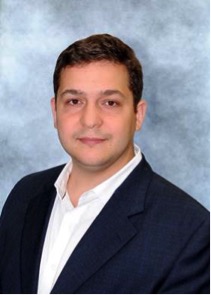
Mark began his career working as the Attorney General of Ontario’s Senior Policy Advisor. Following that, Mark founded Slatewood Retail Advisors, a retail consulting firm primarily focused on the restaurant and apparel market space. In that capacity, Mark transformed small local brands into national chain operations and worked to assist growing international businesses with their legal franchise work, their core branding and their operational workflows.
Presently, Mark is a co-founder of Axess Law, one of Canada’s leading retail law firms with 10 locations in the GTA. Last month, Axess Law was selected as one of the Top 5 Canadian Innovative Law Firms by the Financial Times newspaper.
Mark frequently lectures on Real Estate law and regularly teaches Real Estate Law Courses at the Ontario Real Estate College. In 2014, Mark was selected as one of Canada’s Top 25 Most Influential Lawyers and was recognized as one of the top 5 Legal Change Makers as rated by Canadian Lawyer magazine.
Mark was called to the Ontario bar in 2002 and has an M.B.A. from the Rotman School of Management, a Law Degree from McGill University and a B.A. from the University of Toronto.
Mark says he likes writing about how Law is changing as we move towards a volume based model of service delivery and about the new entrants that are making their mark on the practice. On a purely legal level, he likes writing about consumer based legal services (developments in real property conveyance, wills etc) and ways that those changes affect consumers.
Elizabeth Mah:

Elizabeth Mah is the owner of Paperclip Law, a different kind of law firm that helps families and businesses make the best (and biggest) non-litigation decisions of their lives. In her life before her 2 little girls, she enjoyed cooking and eating hot meals, reading and running without interruption, and throwing darts at a map and then travelling to them.
Elizabeth says that since having her 2 little girls, she is most interested in:
- Time efficiency: in making my (and the team’s) time the most effective and productive that it can be
- Business development/networking
- Firm administration and strategy
Bjorn (Barney) Christianson:

Bjorn (Barney) Christianson is the managing partner of the Christianson TDS offices in Portage la Prairie, MacGregor and Gladstone, offices which have operated with the Christianson name since 1970. His current practice is focused principally on transactional matters in the areas of Farm Real Estate, Corporate, Commercial, Estates, Municipal Law, and litigation relating to those matters.
Bjorn frequently presents on practice management and office technology topics; some of the victims include the Law Society of Manitoba’s CPLED and MCPD programs, the Law Society of Upper Canada SSF Conference, the Lawyers Insurance Association of Nova Scotia, the Manitoba, Central and Western Manitoba Bar Associations, the CBA’s Skilled Lawyer Series, and the ABA TechShow. He provides practice management advice to the members of the Law Society of Manitoba in his spare time. Twitter @Bjornqc
Barney says that the topics that he finds interesting and wishes to write about are:
- time management (many sub-topics)
- creating impressions for clients
- managing expectations
- civility
- importance of clarity in emails
- breaking bad news
- blunt a.o.t nice (and therefore vague)
- planning to buy and replace tech
- staffing issues
- sharpening your axe
- anything to do with running a law office.
Barney has named himself as the curmudgeon of the group; I am not quite so sure about that but I am looking forward to his wise postings!
Ian Hu:

As the face of Claims Prevention and practicePRO at LAWPRO Ian speaks, writes and blogs about practice management, claims prevention and lawyering issues. His mandate is to help lawyers succeed in the practice of law and avoid malpractice claims. Having had experience in private practice under his belt with various sizes of firms, Ian has seen some of the trials and tribulations lawyers go through.
As a former Vice President of the Federation of Asian Canadian Lawyers he has mentored young lawyers and advocated for hundreds of lawyers and students as a group. Ian also has an interest in promoting diversity in the profession and has sat on various advocacy committees.
Ian tells me that the things he is interested in writing about are:
- cognitive bias
- happiness
- new and young lawyers issues (being a professional, building career, soft skills, survival tips, managing time, etc.)
Of course Garry Wise and I will also be continuing as contributing authors and editors at tips.slaw.ca to this amazing team of thoughtful minds. I am very excited about this new phase in SlawTips and I (and I believe I can speak for Garry as well) look forward to seeing the thoughts, ideas and tips from our New Justice Team!
-David J. Bilinsky, Editor, Vancouver BC.
♫ I know that something has changed
Never felt this way
I know it for real
This could be the start
Of something new…♫
Music and lyrics by: Matthew Gerrard, Robbie Nevil, recorded by Vanessa Hudgens.
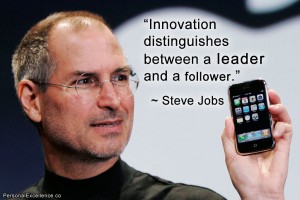
(Photo: CC BY-SA 3.0)
The American Bar Journal on April 1, 2015 posted an article on “100 Innovations in Law” by Jason Krause. It is an interesting review (admittedly from an American perspective) of how law has changed over the last 100 years or so. It makes for an intriguing read, but with all due respect to the author, I would list most of the innovations as evolutionary innovation rather than disruptive innovation. I love Twitter, for example, but I wouldn’t necessarily say that it has proven to be highly disruptive on the legal profession. Even LegalZoom.com hasn’t really opened up new markets; it may have made more services affordable to more people but at least so far I don’t see it having a hugely disruptive effect on the profession.
Why is innovation so hard in Law? Many factors can be cited here, such as law is a very conservative profession, that lawyers are not risk-takers, that lawyers have been taught to rely on precedent (old lawyer joke: “The Managing Partner wants the firm to be innovative, to do things differently” to which the Management Committee asks: “Well, who else is doing it?”) and the like. But the true story is that innovation in most professions is difficult. In fact it may be more difficult in law than other professions due to the structure of law firms.
My friend Jordan Furlong put it this way in an article entitled “Why Lawyers Don’t Innovate“:
So when managing partners ask me, “How can I get my lawyers to change?” I have to respond: You can’t make your lawyers do anything they don’t want to do. They’ll do something only if they decide they want to do it, and they’ll want to do it if encouraged by those they like, respect and trust. In a number of law firms, I’m sorry to report, building a culture of “like, respect and trust” among lawyers can be considerably more difficult than getting lawyers to adopt a new innovation. It requires a level of effort and openness and generosity that many lawyers these days feel they can’t afford. But I’m coming to think it’s the key to successful, long-term, sustainable law firm innovation. And it can be done.
I think that really the Fundamental Attribution Error is at play here. Wikipedia states:
[T]he fundamental attribution error, also known as the correspondence bias or attribution effect, is the tendency for people to place an undue emphasis on internal characteristics (personality) to explain someone else’s behavior in a given situation rather than considering the situation’s external factors.
In other words, lawyers are reluctant to innovate since the system in which they operate (the modern law firm) does not create a situation of trust that fosters innovation. They behave as they do since that is a rational response to the culture inside law firms.
I have had the great good fortune to be part of a small group tour of Google and Facebook’s campuses in Palo Alto California. There is no question that innovation is almost palpable in the air at these locations. They have crafted an environment where innovative thinking is expected and fostered.
If we truly want lawyers and law firms to be innovative, we need to change the culture. We need to know that when we enter an innovative firm, we all know that something has changed, that this could be the start of something new…
(cross-posted to tips.slaw.ca)





















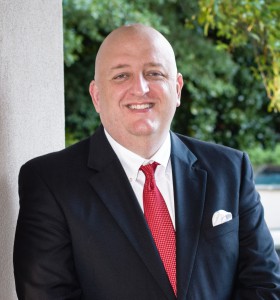
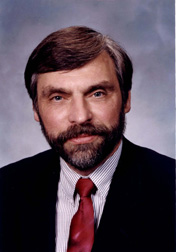
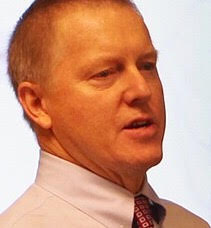
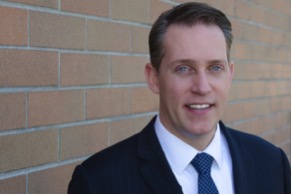
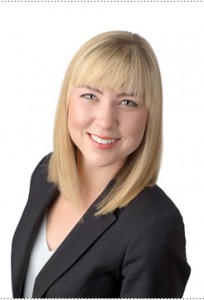
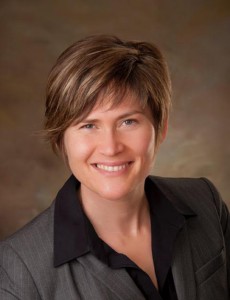
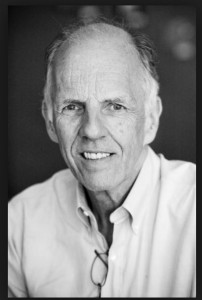
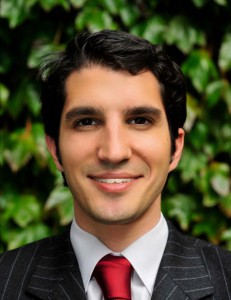









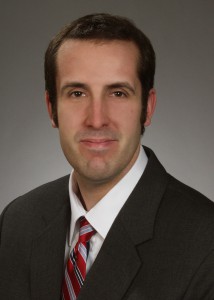

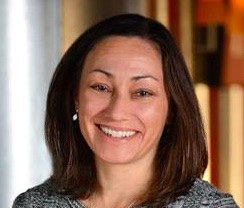




![crule at cpr[1]](http://thoughtfullaw.com/wp-content/uploads/2015/12/crule-at-cpr1.jpg)


